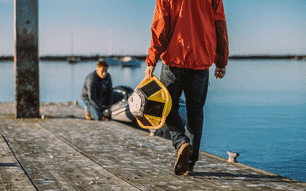Dr Julie Robins, Senior Fisheries Biologist with the Queensland Department of Agriculture and Fisheries (DAF) said estimating the age of fish was important as it contributes to determining if a fish stock is sustainably fished.
"The research has found that near infrared (NIR) spectra collected from fish ear bones (known as otoliths) has the potential to estimate the age of fish," Dr Robins said.
"Over 60,000 otoliths are collected and processed each year in Australia and this research will potentially provide significant cost savings to fish ageing programs.
"It will make the age-identification process much more efficient and cost-effective by reducing the time and resources required to determine the age of fish."
DAF Principal Scientist, Brett Wedding said traditional methods are labour-intensive whereas NIRS technology, which has been used for decades in many agricultural situations, relies on using a spectrophotometer.
"NIRS technology offers a rapid and cost-effective method of predicting properties of interest such as moisture in wheat, oil content in sandalwood, ripeness or quality in fruit," he said.
"We found that NIR spectroscopy instruments could be readily configured to capture the NIR spectra of whole dry fish otoliths.
"One of the most interesting results of the project was the potential for NIRS to discriminate between otoliths collected from different locations. This would be particularly useful determining where fish come from."
The two and half year study was funded collaboratively by the Fisheries Research and Development Corporation and the State Governments of Queensland, Northern Territory, South Australia and Western Australia. Further research is currently under consideration.




